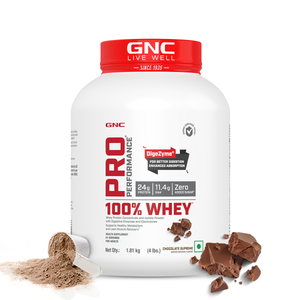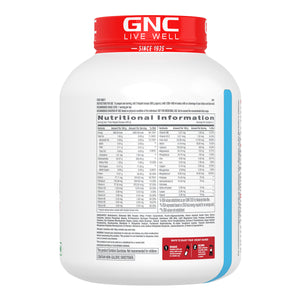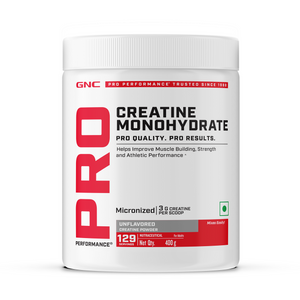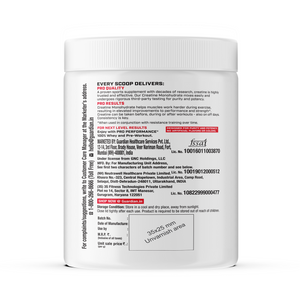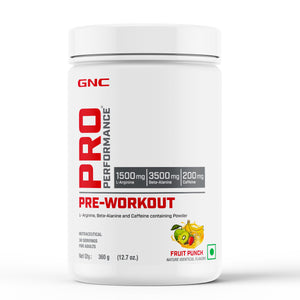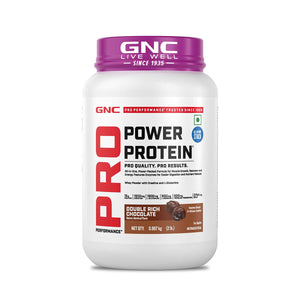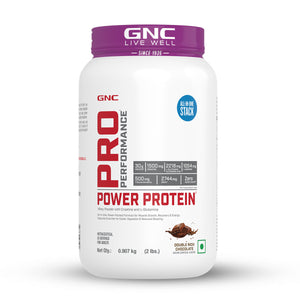How to improve gut health?
Top 10 Tips on How to Improve Gut Health
1. Keep yourself hydrated
How to improve gut health naturally? One of the ways is to keep yourself hydrated and drink at least 8-10 glasses of water each day. Water is truly the elixir of life, and it helps you flush out all the toxins from the body.
2. Minimize stress
It may sound cliché but stress can make health issues far worse. For those who already have gut-related issues, even a little stress can trigger adverse effects on their gut health. If you are finding the answer to how to improve gut health naturally, then try and reduce stress to see great results.
3. Eat healthy
A healthy, nutritious diet forms the basis of your good health. Try and include all the macronutrients in your food, unless your dietician or doctor has asked you to eliminate a certain food group for health reasons. Eat a lot of vegetables and fruits. Minimize the consumption of artificial sweeteners, fried and spicy food, processed food and refined sugar.

4. Add fiber to your diet
One of the major reasons due to which a lot of people have gut-related issues is not having enough fiber in their daily diet. You can add more fiber to your diet by switching to whole grains like – oats, whole wheat pasta, dalia, etc.
5. Get enough sleep
Want to know how to improve gut health? By getting a restful night’s sleep. Getting enough sleep can improve your mood, gut health, and brain functions. Various studies have suggested that irregular sleep habits and disturbed sleep can have negative outcomes for the gut flora, which may increase the risk of inflammatory conditions.
6. Avoid taking antibiotics unnecessary
If you’re someone who keeps popping pills for every small discomfort, then it may be negatively affecting your gut health. It is important to take antibiotics to combat bacterial infections, but don’t keep having them unnecessarily. Overuse can lead to gut issues and antibiotic resistance.
7. Take probiotics and prebiotics
If you search on the internet – how to improve your gut health? The top results will have the discussion of probiotics and prebiotics. Many people get confused between probiotics and prebiotics. Probiotics are foods or supplements that contain live microorganisms intended to maintain or improve the "good" bacteria (normal microflora) in the body. Prebiotics are foods (typically high-fiber foods) used to sustain human microflora.
8. Exercise regularly
Try to exercise at least 5 days a week. Moving your body is so important not just to maintain your physical health, but your mental well-being as well. Regular exercise also helps tackle obesity, which positively affects your gut health and improves immunity.

9. Avoid smoking and drinking
One of the best solutions of how to improve gut health naturally is to avoid smoking and alcohol. They wreak havoc on your body, especially your gut and liver health. So, completely avoid or minimize alcohol consumption and smoking as much as possible.
10. Take gut health supplements
If you are wondering how to improve gut health, then adding
gut health supplements
can be a good option. Ask your doctor about it and he/ she will recommend the best ones suitable for you.
Type of Foods to Naturally Improve your Gut Health
When looking for ways to improve gut health naturally, always remember that food plays a major role. If you want a healthy body and gut, you need to be mindful of what you eat.
- Vegetables, legumes, and beans
- Whole grains
- Fermented foods (kimchi, yogurt, kombucha, and tempeh)
- Foods rich in polyphenols (almonds, green tea, cocoa and dark chocolate, onions, blueberries, broccoli, grapes)
Why Does Gut Health Matter?
The gut breaks down the food you eat and absorbs the nutrients for various functions of your body. Experts believe that gut is the foundation of human body and if you want a healthy body, your gut health needs to be taken care of. In fact, 80% of your immune system is in the gut, and the majority of your body’s serotonin is rooted there too. As a result, if your gut isn’t healthy then your
immune
system and hormones won’t function properly, and you will get sick more often.

So, if your gut is imbalanced and your immune system isn’t working properly then your serotonin mechanism and hormones won’t either, making it more challenging to stay healthy. Your gut is also where your body gets rid of metabolic waste and toxins. However, if you have an unhealthy gut, your body will struggle to rid itself of those toxins.
About Your Microbe
Gut microbes are also known as gut flora and they refer to the trillions of microorganisms that reside in your gastrointestinal tract, primarily in the colon. These microbes consist of bacteria, viruses, fungi, etc. and they play a pivotal role in maintaining your gut health and overall well-being. Some key points about gut microbes are –
- There is a diverse range of gut flora in your gastro tract and each person has a unique combination of gut microbes.
- Gut microbes have numerous functions, such as barrier maintenance, vitamin synthesis in the body, proper digestion & nutrient absorption, and metabolism & energy balance.
- Disruption in the balance of gut microbes, known as dysbiosis can be due to various health reasons like inflammatory bowel disease (IBD), obesity, irritable bowel syndrome (IBS), food allergies, etc.
- It is possible to influence and modulate the composition of gut microbes. This can be done through dietary modifications and lifestyle changes to subsequently improve your gut health.
Signs and Symptoms of an Unhealthy Gut
Some of the most common signs of an unhealthy gut are –
- Fatigue and tiredness
- Digestive issues, including gas, constipation, upset stomach, etc
- Diarrhea and loose motions
- Nausea and vomiting
- Intolerance towards some foods
- Extreme food cravings, especially sugar
- Skin irritations
- Frequent mood swings and brain fog
- Poor immunity and falling ill often
Frequently Asked Questions (FAQs)
Q. What foods can affect gut health negatively or positively?
A. The simplest solution to improve gut health is through food. Foods that affect gut health positively are – fruits and vegetables, fermented foods (tempeh, kombucha, yogurt, and kimchi), fiber-rich foods (legumes, whole grains, and bone broth), omega-3 rich foods (fatty fish or omega-3 supplements), polyphenol rich foods (green tea, cocoa and dark chocolate, blueberries, apples, etc., and prebiotic foods (garlic, bananas, onions, leeks etc.).
Certain foods can disrupt your gut health and have a negative impact on it. Some of the most common ones are spicy foods, processed foods, alcohol, artificial additives & preservatives, food coloring, red & processed meats, oily & fried food, processed high-sugar foods, and artificial sweeteners.
Q. Is there a link between gut health and mental health?
A. Yes, there is a strong link between gut health and mental health. The gut and the brain are connected through a bidirectional communication pathway known as the gut-brain axis. This axis involves the complex interaction between the central nervous system, the enteric nervous system, and gut microbes. In cases of stress, gut health goes for a toss, which is nothing but a reaction. Gut microbes play an important role in maintaining the gut-brain axis. Mental health conditions, including depression, anxiety, or other issues can lead to poor gut health. So, the next time you want to answer the question of how to improve your gut health, make sure you keep in mind your mental health as well.
Q. What can you do to support the good bacteria in your gut?
A. To support good bacteria in your gut there are several things that you should do –
- Drink lots of water
- Eat a mix of probiotic, prebiotic, and fermented foods
- Eliminate stress from your life
- Exercise regularly
- Get enough sleep
- Eat home-cooked healthy meals instead of processed foods
- Include healthy fats, such as omega-3 fatty acids, in your diet
- Avoid use of unnecessary antibiotics
- Minimize or avoid smoking and drinking
Q. What are the signs and symptoms of gut health problems?
A. The signs that indicate gut problems are – fatigue and tiredness, upset stomach, gas, constipation, skin irritation, mood swings, low immunity, unable to digest food, heartburn and acid reflux, loose motions, and nausea.







